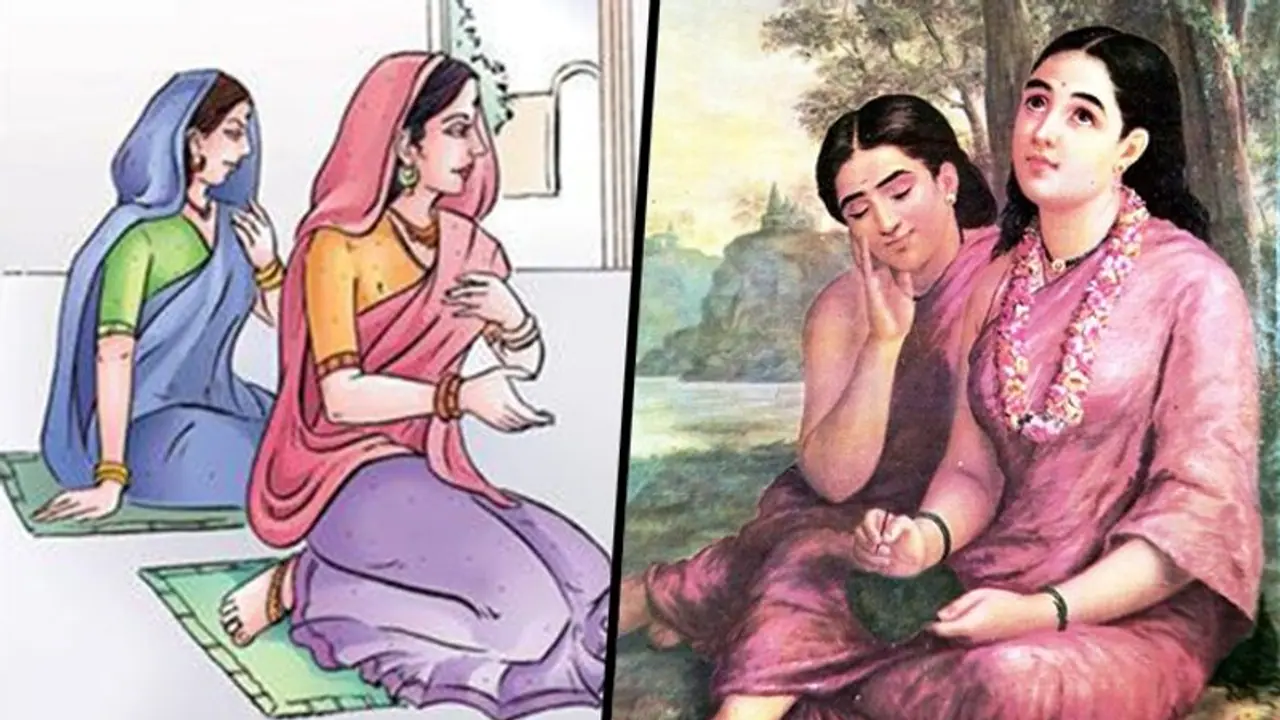Feminist discourses in India is copying the west. They are thus not taking the inter-sectionalism and diasporic nature of Indian women. Our history has taught us how women took their fights for rights without divorcing their culture, and this needs to be brought back again!
Whenever people speak of Feminism, the names that come to our mind are Virginia Woolf, Simone de Beauvoir, Adrienne Rich, and Elaine Showalter. Why? The Feminism movement has been hijacked by the West. These women have indeed done a lot for voicing the needs and wants of women, but they have been quite late to this movement. Indians have done this for ages and our feminism is ages old.
If we go back to the Vedic period, we find several women scholars leading the society, like Lopamudra, Maitreyi, and Gargi. In the Brihadaranyaka Upanishad, Gargi Vachaknavi has been credited for asking some profound questions to philosophers of Vedanta about the nature of the soul and the origin of the universe. She did that during a public debate with Yajnavalkya, the Vedic philosopher! In one such incident, Gargi bombarded Yajnavalkya with questions in a court filled with male philosophers that left him at a loss of words. He was so dumbfounded with her questions that he threatened her stating, her head would fall off if she didn’t stop. But when she failed to get her answers from a court full of philosophers, she kept on with her questions. She was Yajnavalkya’s strongest opponent, stronger than all the male philosopher counterparts.
Even in the Hindu tradition, women are considered as manifestations of Shakti. Shakti involves both creation and destruction. Women are considered as the embodiment of forgiveness, compassion, and tolerance when needed, but they also turn destructive whenever it comes to protecting their families or destroying evil. We have goddesses manifest to the benevolent form of shakti like our gentle Goddess Uma, and we have also seen the terrifying force which destroys evil, our fearless Goddess Kali. We have also seen the brave warrior Goddess Durga who has the potential to conquer all forces and in fact destabilize our entire universe. Our deities are all powerful beings and they aren’t second fiddle to male gods. Goddesses symbolize various aspects of power and whenever we need anything, our general tendencies are to reach out to Devi-Maa. So why do we forget our own feminist heroes and reach out for a culture that doesn’t blend in with ours?
If we still need more inspiration, Queen Didda ruled Kashmir single-handedly with an iron hand for over four decades despite a disability in her leg. She inherited a fractious kingdom, but she ruled it beautifully with her tremendous political survival skills, her ability to rule and her ability to maintain peace and stability against all odds. Her skills and political prowess earned her the global reputation of being Catherine of Kashmir, referring to Catherine the Great (the longest-ruling female leader of Russia)!
Feminism is not just the voice of protest or questioning. It is a process of realising one’s self-worth, overcoming our inner fears and reflecting on our moral selves. All our epics and Puranas contain these lessons through pluralistic narration, the multiplicity of interpretations. They touch all possible aspects of human life thus helping us to understand and comprehend all questions that may arise in our public and family life. We have seen Shakuntala (written by Kalidasa) and Kannagi (written by Adigal) take on patriarchal exclusion nurtured in our homes head-on and fight for their moral rights. Their fight against the total subservience to authority has put kings to shame!
Yet our women fought all of this without any social or political movements against men. They did not break up families or criticised the very existence of men. They just fought against unjust restrictions to achieve true gender equality. They did not just stop at patriarchy. The Indian brand of feminism was truly inter-sectional as they also sought to breakdown caste barriers. Let us take the Bhakti movement as an example. Meera, Avvaiyar and Karaikal Ammaiyar broke all hegemonic structures and broke themselves off all oppressive social norms which have enriched the lives of women today.
People claim that feminism in India was brought, shaped and nurtured by the British. The present discourse is all trying to copy the West in the strive to be modern. Thus, they are ignoring the fights of many women who are fighting against the economic, social, political and psychological suppression in the Indian context. The present feminist discourse has now alienated those women who do not believe in or connect with the western ideologies. They now have made their feminism stereotypic and discriminatory. But it is not too late! We need to understand that Feminism is multicultural and diasporic. The needs of women change from country to country and culture to culture. The needs of women depend on various factors like familial, societal, racial, marital, economic, cultural and most importantly individual. So, we should stop associating Indian feminism to the west which is often marked by extremely radical steps.
Tomorrow marks the beginning of our auspicious Chaitra Navratri. So, I urge one and all to acknowledge the importance of women in our lives, country, and the universe. Let us all take the pledge of respecting the Goddess Shakti in our women and giving them the respect, love, and appreciation, they deserve. And let that change begin now.
About Abhinav Khare
Abhinav Khare is the CEO of Asianet News Network and also the host of a daily show named Deep Dive with AK. He has a lifetime collection of books and gadgets and has already pinged more than hundred cities around the globe.
He is a tech entrepreneur, who is passionate about policy, technology, economy and philosophy from ancient India. He earned an MS Engineering from the ETH Zurich and an MBA Finance from the London Business School.
